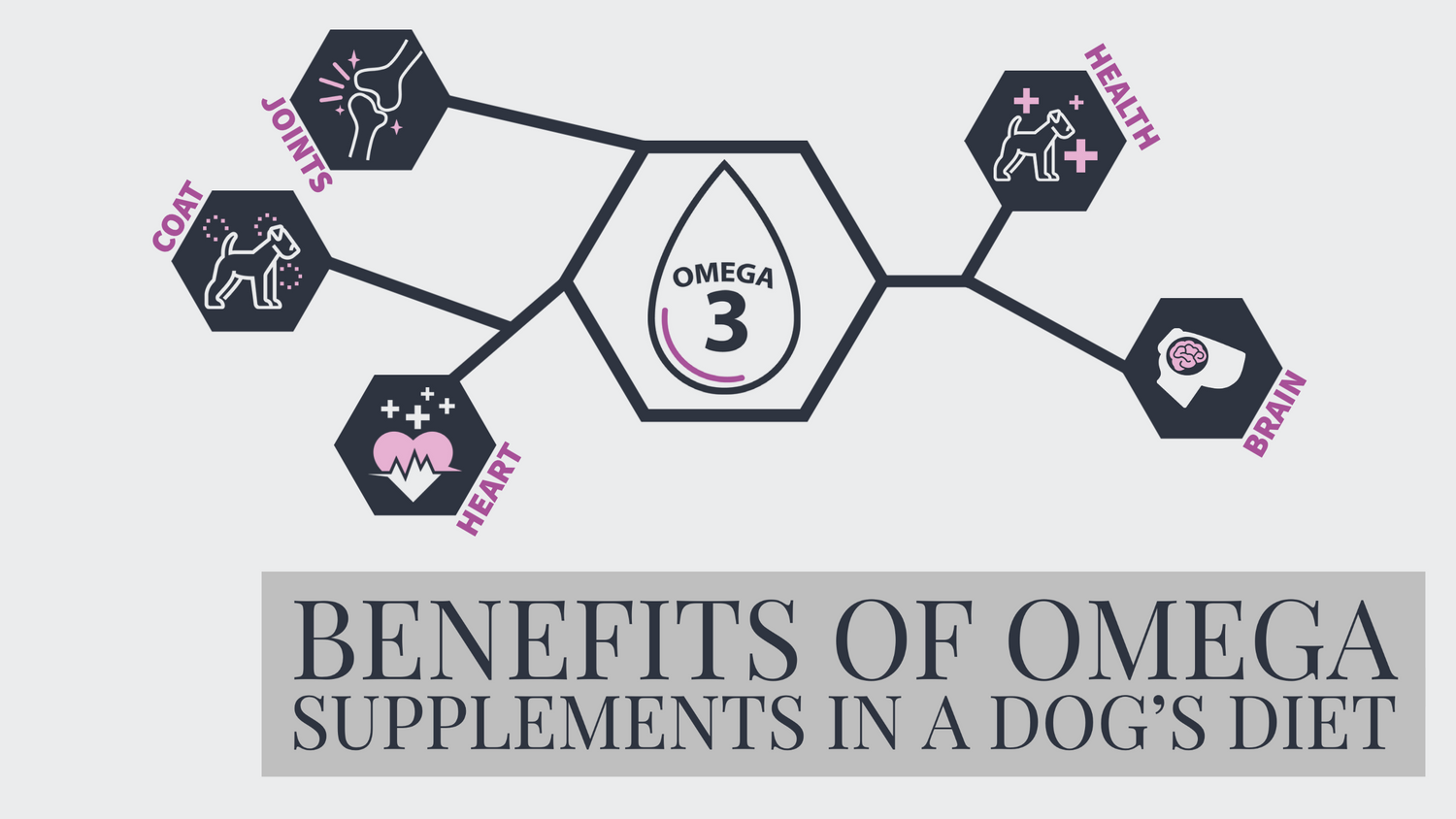Introduction
As pet owners, we always strive to provide the best possible care for our furry friends. One essential aspect of a dog's well-being is their diet, which directly influences their overall health and longevity. Omega-3 fatty acids, commonly found in fish oils, have gained popularity for their numerous health benefits in dogs. In this blog post, we'll explore the top potential advantages of incorporating sardine-based omega supplements into your dog's diet, backed by scientific evidence. Eicosapentaenoic acid (EPA) and docosahexaenoic acid (DHA) are the two most biologically active forms of omega-3s, known for their anti-inflammatory properties and overall health benefits (Kris-Etherton et al., 2018). Sardine-based supplements tend to contain higher concentrations of these vital fatty acids than salmon oil, making them a powerful choice to reap health benefits.
Promotes a Healthy Coat and Skin
One of the primary benefits of sardine-based omega supplements for dogs is their positive impact on skin and coat health. Omega-3 fatty acids, specifically EPA and DHA, play a crucial role in maintaining the integrity of the skin barrier, reducing inflammation, and preventing dry, itchy skin. By including sardine-based omega supplements in your dog's diet, you can help them achieve a lustrous coat and healthier skin overall (Roush et al., 2010).
Supports Joint Health and Mobility
As dogs age, they may experience joint discomfort and reduced mobility due to conditions such as osteoarthritis. Studies have shown that omega-3 fatty acids possess anti-inflammatory properties that can help manage joint inflammation and improve joint function in dogs with arthritis (Roush et al., 2010). Adding omega supplements to your dog's diet can potentially alleviate discomfort, allowing them to stay active and mobile for longer.
Enhances Cognitive Function
Omega-3 fatty acids are vital for brain health and cognitive function in both humans and dogs. DHA, in particular, is a major component of brain tissue and plays a key role in neural development and function. Supplementing your dog's diet with omega oils may help support brain health, memory, and learning abilities, especially in aging dogs (Yan et al., 2016).
Boosts Immune System
A strong immune system is essential for protecting dogs from infections and diseases. Omega-3 fatty acids have been shown to modulate immune responses, making them an important component in supporting a dog's immune system (Bauer, 2011). By introducing sardine-based omega supplements, you can potentially help your canine companion better ward off illnesses and maintain overall health.
Aids Heart Health
Cardiovascular health is vital for dogs, especially those prone to heart conditions. Omega-3 fatty acids have been associated with several cardiovascular benefits, such as reducing blood pressure, improving lipid profiles, and reducing the risk of heart rhythm abnormalities (Freeman et al., 2018). Incorporating omega supplements into your dog's diet can contribute to a healthier heart and potentially increase their lifespan.
Conclusion
Sardine-based omega supplements can be a game-changer for your dog's diet and overall health. From promoting a healthy coat and skin to supporting joint health, cognitive function, and immune system, the benefits are wide-ranging and well-supported by scientific research. However, before introducing any new supplements into your dog's diet, it's a good idea to consult with a veterinarian to ensure it's appropriate for your pet's specific needs and conditions. A balanced and nutritious diet, along with regular exercise and veterinary care, are all essential components of maintaining your furry friend's well-being and helping them live a long, happy life.



0 comments